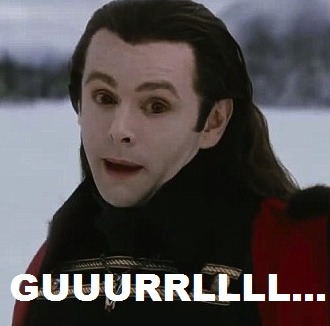Liberals are not as psychotic and authoritarian as conservative fake news sites would have you believe.
I was reading Gabriel’s blog, which had this story on how “Study from 2012 now corrected to show liberals, not conservatives, more authoritarian”.
With the current furore over fake news – and with the story itself looking somewhat dubious – I thought I’d dig a bit deeper.
First, I found the actual paper in question. I also found the erratum that had been published.
Then, I found this page which had a link to “Why It Took Social Science Years to Correct a Simple Error About ‘Psychoticism'”.
The story provides both background and backstory to how the error was made and how the correction came about.
(As an aside, it also demonstrates how the scientific community is not immune to drama, intrigue and confirmation bias, too.)
More importantly, it explains what psychoticism means:
…psychoticism, in this case, doesn’t mean psychotic in the everyday sense of the word…. Psychoticism…is a cluster of concepts related to people’s level of individuality and penchant for falling in line — it’s measured using questions like “Do you prefer to go your own way rather than act by the rules?” Being high in psychoticism means you have less respect for rules and for order in general — it doesn’t mean you are psychotic or otherwise mentally ill. (my emphasis)
I was still curious about the authoritarian bit, though, as the story made no mention of the term.
So I went to do a bit of reading and this is what I’ve found from Professor Glenn Wilson’s lecture on “The Psychology of Politics”:
- Adorno et al (1950) list a number of characteristics that typify an authoritarian person, which include:
- Tendencies toward militarism;
- Strict morality;
- Ethnocentrism;
- Rigid conventionality; and
- Blind obedience to higher authority combined with a vindictive attitude toward weaker individuals.
- While
Adorno et al assume that authoritarianism was an exclusively right-wing characteristic…H. J. Eysenck (also a German refugee) reckoned that there was an equivalent authoritarianism of the left. Eysenck (1954) used factor analysis to reveal two independent dimensions of political attitudes that he called radicalism (R) and toughmindedness (T). R was basically the left-right dimension, while T was a kind of totalitarianism shared by Marxists and Fascists. Subsequent studies have shown that T connects with an aggressive and dogmatic personality style (Eysenck & Wilson, 1978). Communists and Fascists were furious at the suggestion they had anything in common and, as if to prove the point, Eysenck was physically assaulted by representatives of both groups at different times in his career. (my emphasis)
- And “Hirsh et al (2010) argue that liberals and conservatives are both value driven but the order of priority of the values is different. For liberals, openness, compassion and equality are uppermost, while conservatives are more concerned about order, tradition and reliability“. (my emphasis)
In other words, authoritarianism in this context doesn’t have the same connotation as the authoritarianism ascribed to dictators and despots.
It has more to do with a rigidity of world-view, and this authoritarianism is expressed in different ways as compared to conservatives.
That is, while conservatives will agitate against abortion, art they deem shocking, non-heterosexual sexuality, etc., liberals also do so in similar ways: safe spaces, gender pronouns, microaggressions, etc.
